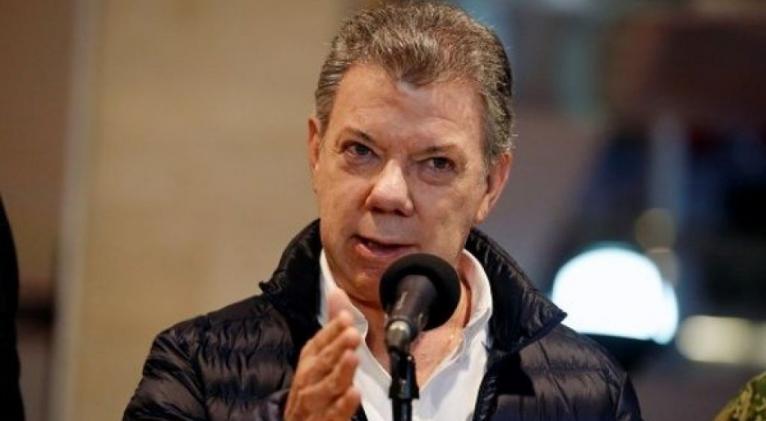Amid Prisoner Hunger Strike, Colombia's Santos Signs Last Amnesty for FARC Members
especiales

The former rebels are demanding the release of all political prisoner and say only 832 of 3,400 have been included in the deal.
The Colombian government announced Monday a new batch of amnesty legislation that would apply for 3,600 members of the FARC, without clarifying if it applied to the members in the current transitional zones or political prisoners.
RELATED: Jailed FARC Members Continue Hunger Strike for Promised Amnesty
The Revolutionary Armed Forces of Colombia criticized Santo's previous amnesty announcement since only 832 of 3,400 members who are currently imprisoned were part of the deal.
Santos announced this was the third and last agreement he will sign and said more than 7,000 members will receive amnesty or be released from prison. Until now 1,346 political prisoners have been on a hunger strike for the past two weeks demanding release.
A list of 455 human rights defenders and personalities from all over the world, including Nobel Peace prize winner Adolfo Perez Esquivel, signed a letter to the Colombian government to demand the release of the political prisoners under the peace agreement and asked for Pope Francis' intervention in the name of those being held.
"There is no reason to keep thousands of political prisoners imprisoned, especially those who are covered by the Peace Agreement between the government and the FARC, who, in compliance with the agreement and Law 1820, were to be released on December 31, 2016," read the letter.
It's been six months since the Colombian Congress signed the Amnesty and Pardons Act, but the FARC condemned the state's failure to release prisoners within the framework of the peace agreement signed last year.
According to the deal negotiated since 2012 and signed in Cuba, arrest warrants will be also nullified and requests for amnesty must be resolved within a period no longer than three months after they are presented to a court.
RELATED: Colombia's FARC Launches Coop As First Act After Disarmament
The FARC delivered 7,132 weapons last month to end decades of armed conflict and to start its transition into political life. The United Nations still needs to give all the certificates to the former rebels making their delivery of weapons official.
The 26 transitional zones where members gathered during the implementation of the peace deal will cease to exist and give way to their return to civilian life. The group has denounced the paramilitary violence that has increased in areas vacated by the group, leading to more murders and threats to social justice leaders in the country.
The FARC will now form a political entity and receive five seats in the House of Representatives and five in the Senate beginning in 2018 during two electoral periods. Any member of the FARC will be able to occupy those seats.
The country's second largest group, the National Liberation Army began a similar process of peace talks, which have been taking place in Ecuador since the beginning of 2017













Add new comment